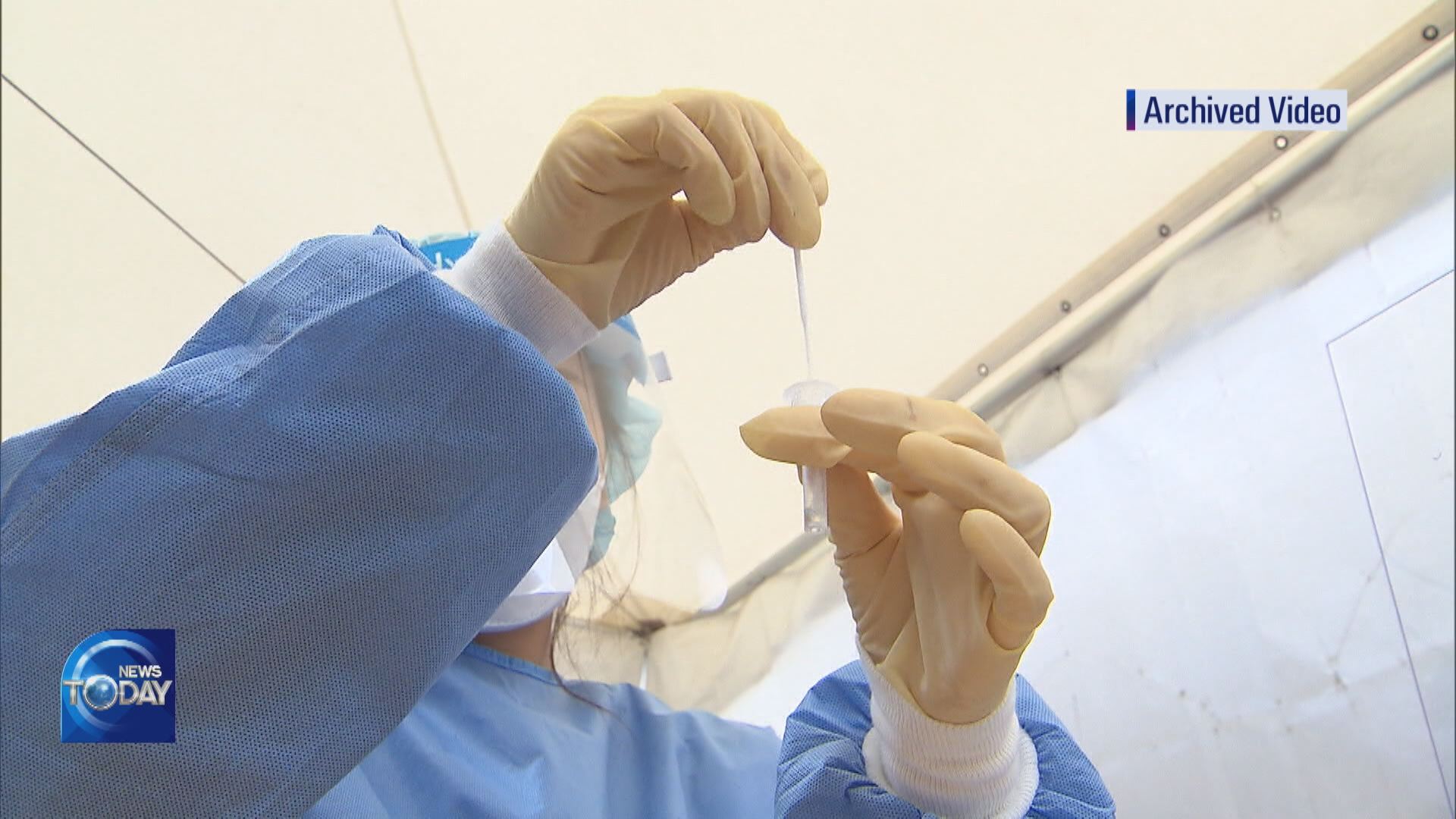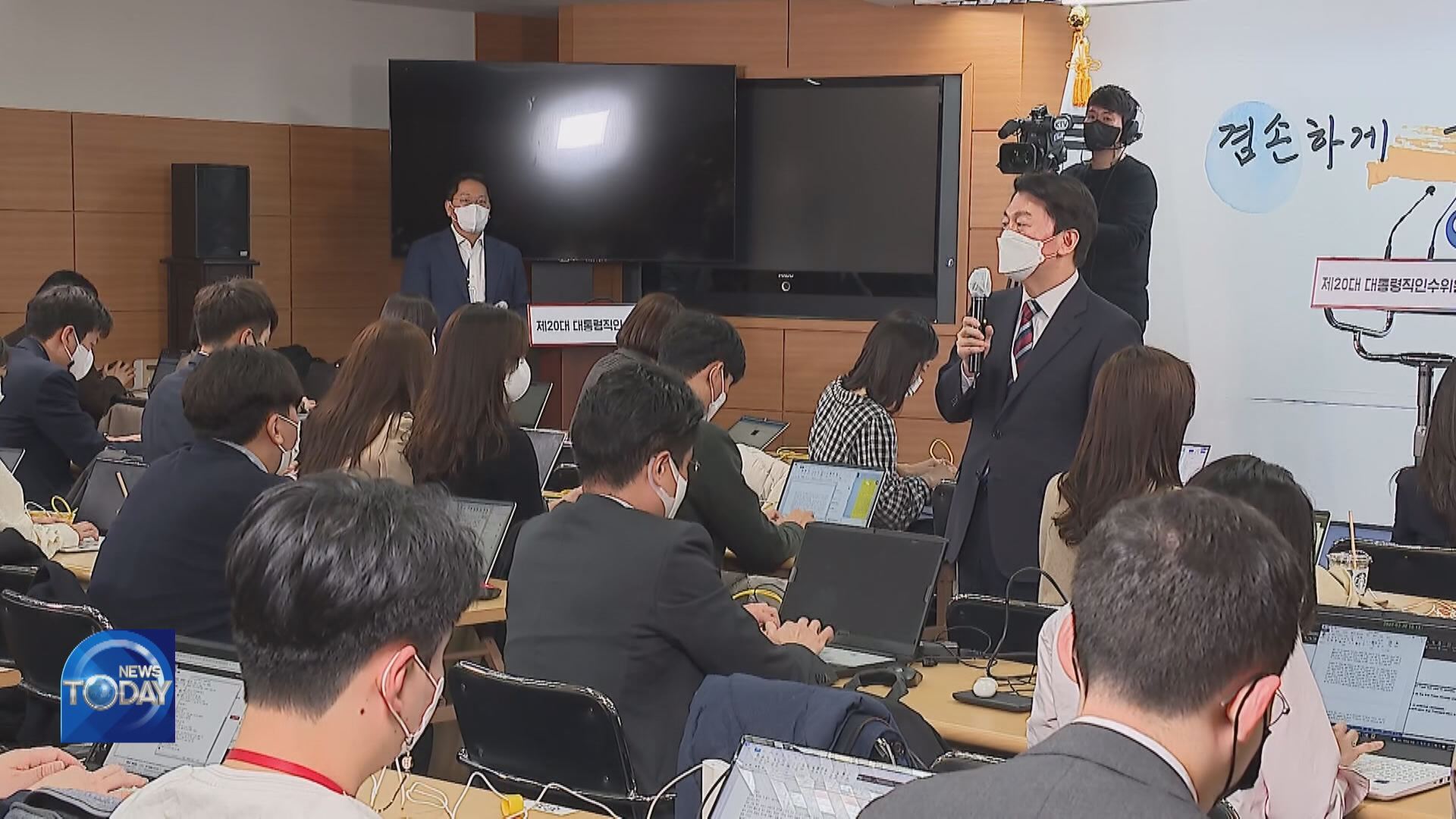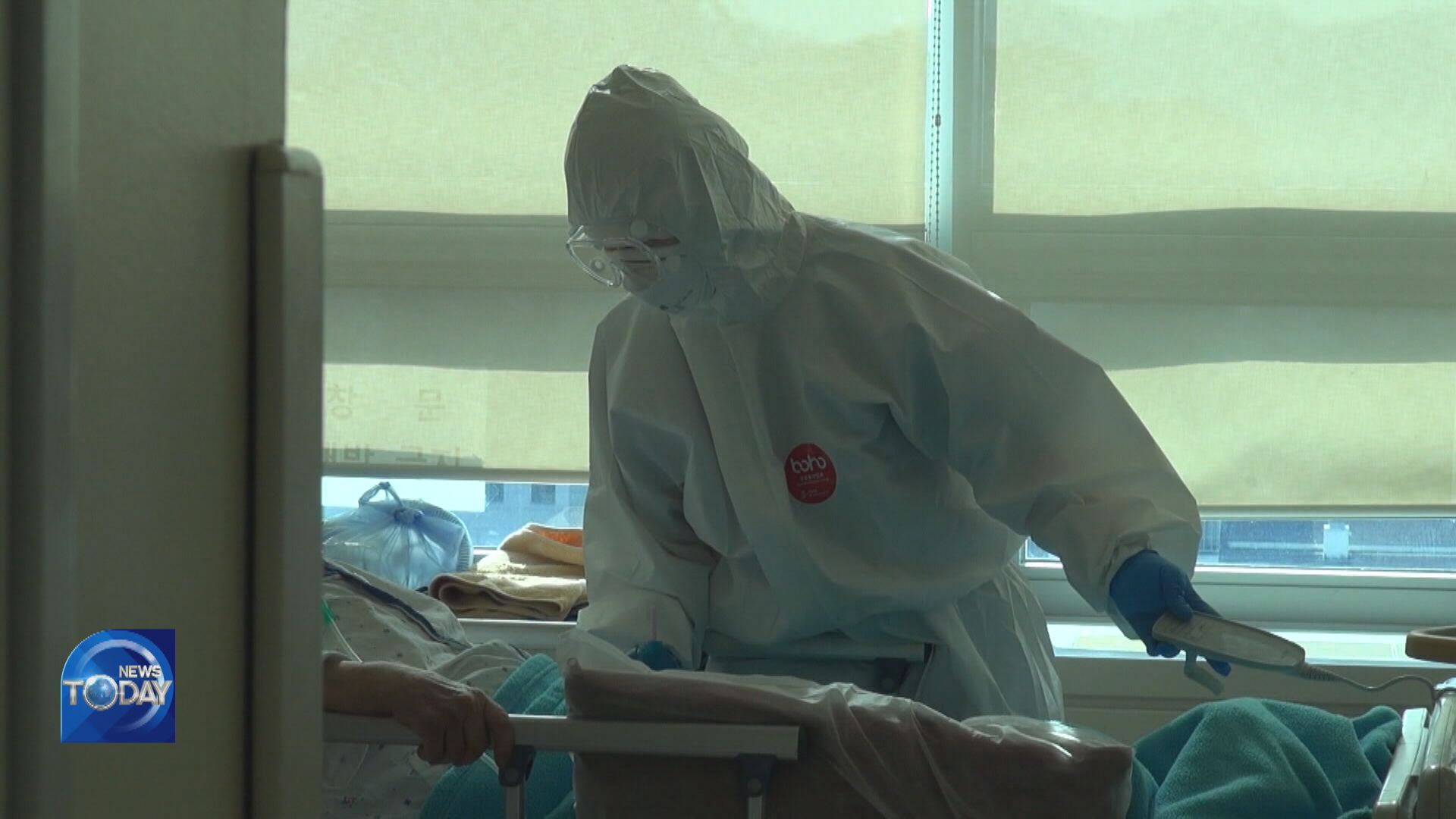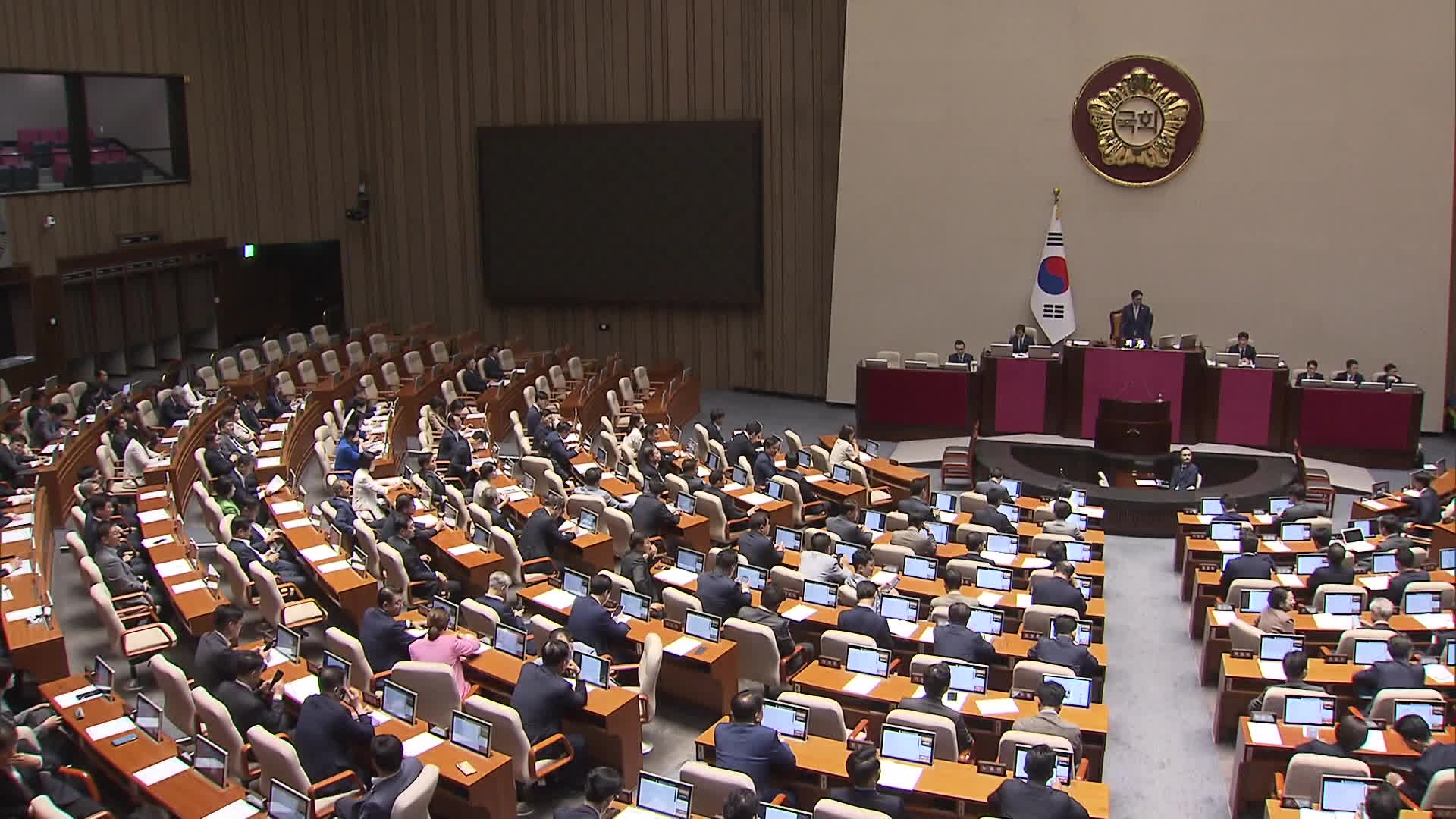MORE HOSPITALS TO TREAT COVID-19 PATIENTS
입력 2022.03.30 (15:06)
수정 2022.03.30 (16:47)
읽어주기 기능은 크롬기반의
브라우저에서만 사용하실 수 있습니다.
[Anchor Lead]
The number of people receiving at-home treatment from COVID-19 has topped 1.7 million. The government will designate more hospitals to treat non-hospitalized patients' other illnesses unrelated to COVID-19 in-person, but it remains to be seen how effective the move will be.
[Pkg]
A man whose son recently contracted COVID-19 had a nerve-wracking experience. Two days after being diagnosed with the virus, his son developed a high fever and had difficulty breathing, but it took them more than four hours to find a hospital that would agree to admit the boy.
[Soundbite] (Suwon resident) : "Some hospitals did not answer the phone, others refused to admit us. I called the clinics that were said to provide treatment at night, but they turned us down."
Currently there are only 279 clinics and hospitals nationwide that provide in-person treatment to non-hospitalized COVID-19 patients. That's not enough to handle some 1.7 million infected people. Plus, all those clinics specialize in respiratory illnesses only. The government decided to designate more hospitals including orthopedic and traditional medicine clinics to provide in-person care to coronavirus patients receiving treatment at home. Authorities have also simplified the designation procedure. Hospitals can immediately obtain approval upon submitting their applications without any screening procedures.
[Soundbite] Park Hyang(Central Disaster Management HQs) : "Hospitals and clinics that provide COVID-19 treatment will be allowed to charge health insurance fees."
Health workers agree with the measure, but they say more needs to be done.
[Soundbite] Park Soo-hyun(Korean Medical Association) : "It would be difficult for clinics to apply because of the lack of first aid needed in case of emergency or because of the risk of infections spreading inside the clinics."
The government is also discussing with experts whether to downgrade COVID-19 to a less threatening infectious disease by promoting in-person health care for the infected.
The number of people receiving at-home treatment from COVID-19 has topped 1.7 million. The government will designate more hospitals to treat non-hospitalized patients' other illnesses unrelated to COVID-19 in-person, but it remains to be seen how effective the move will be.
[Pkg]
A man whose son recently contracted COVID-19 had a nerve-wracking experience. Two days after being diagnosed with the virus, his son developed a high fever and had difficulty breathing, but it took them more than four hours to find a hospital that would agree to admit the boy.
[Soundbite] (Suwon resident) : "Some hospitals did not answer the phone, others refused to admit us. I called the clinics that were said to provide treatment at night, but they turned us down."
Currently there are only 279 clinics and hospitals nationwide that provide in-person treatment to non-hospitalized COVID-19 patients. That's not enough to handle some 1.7 million infected people. Plus, all those clinics specialize in respiratory illnesses only. The government decided to designate more hospitals including orthopedic and traditional medicine clinics to provide in-person care to coronavirus patients receiving treatment at home. Authorities have also simplified the designation procedure. Hospitals can immediately obtain approval upon submitting their applications without any screening procedures.
[Soundbite] Park Hyang(Central Disaster Management HQs) : "Hospitals and clinics that provide COVID-19 treatment will be allowed to charge health insurance fees."
Health workers agree with the measure, but they say more needs to be done.
[Soundbite] Park Soo-hyun(Korean Medical Association) : "It would be difficult for clinics to apply because of the lack of first aid needed in case of emergency or because of the risk of infections spreading inside the clinics."
The government is also discussing with experts whether to downgrade COVID-19 to a less threatening infectious disease by promoting in-person health care for the infected.
■ 제보하기
▷ 카카오톡 : 'KBS제보' 검색, 채널 추가
▷ 전화 : 02-781-1234, 4444
▷ 이메일 : kbs1234@kbs.co.kr
▷ 유튜브, 네이버, 카카오에서도 KBS뉴스를 구독해주세요!
- MORE HOSPITALS TO TREAT COVID-19 PATIENTS
-
- 입력 2022-03-30 15:06:42
- 수정2022-03-30 16:47:01

[Anchor Lead]
The number of people receiving at-home treatment from COVID-19 has topped 1.7 million. The government will designate more hospitals to treat non-hospitalized patients' other illnesses unrelated to COVID-19 in-person, but it remains to be seen how effective the move will be.
[Pkg]
A man whose son recently contracted COVID-19 had a nerve-wracking experience. Two days after being diagnosed with the virus, his son developed a high fever and had difficulty breathing, but it took them more than four hours to find a hospital that would agree to admit the boy.
[Soundbite] (Suwon resident) : "Some hospitals did not answer the phone, others refused to admit us. I called the clinics that were said to provide treatment at night, but they turned us down."
Currently there are only 279 clinics and hospitals nationwide that provide in-person treatment to non-hospitalized COVID-19 patients. That's not enough to handle some 1.7 million infected people. Plus, all those clinics specialize in respiratory illnesses only. The government decided to designate more hospitals including orthopedic and traditional medicine clinics to provide in-person care to coronavirus patients receiving treatment at home. Authorities have also simplified the designation procedure. Hospitals can immediately obtain approval upon submitting their applications without any screening procedures.
[Soundbite] Park Hyang(Central Disaster Management HQs) : "Hospitals and clinics that provide COVID-19 treatment will be allowed to charge health insurance fees."
Health workers agree with the measure, but they say more needs to be done.
[Soundbite] Park Soo-hyun(Korean Medical Association) : "It would be difficult for clinics to apply because of the lack of first aid needed in case of emergency or because of the risk of infections spreading inside the clinics."
The government is also discussing with experts whether to downgrade COVID-19 to a less threatening infectious disease by promoting in-person health care for the infected.
The number of people receiving at-home treatment from COVID-19 has topped 1.7 million. The government will designate more hospitals to treat non-hospitalized patients' other illnesses unrelated to COVID-19 in-person, but it remains to be seen how effective the move will be.
[Pkg]
A man whose son recently contracted COVID-19 had a nerve-wracking experience. Two days after being diagnosed with the virus, his son developed a high fever and had difficulty breathing, but it took them more than four hours to find a hospital that would agree to admit the boy.
[Soundbite] (Suwon resident) : "Some hospitals did not answer the phone, others refused to admit us. I called the clinics that were said to provide treatment at night, but they turned us down."
Currently there are only 279 clinics and hospitals nationwide that provide in-person treatment to non-hospitalized COVID-19 patients. That's not enough to handle some 1.7 million infected people. Plus, all those clinics specialize in respiratory illnesses only. The government decided to designate more hospitals including orthopedic and traditional medicine clinics to provide in-person care to coronavirus patients receiving treatment at home. Authorities have also simplified the designation procedure. Hospitals can immediately obtain approval upon submitting their applications without any screening procedures.
[Soundbite] Park Hyang(Central Disaster Management HQs) : "Hospitals and clinics that provide COVID-19 treatment will be allowed to charge health insurance fees."
Health workers agree with the measure, but they say more needs to be done.
[Soundbite] Park Soo-hyun(Korean Medical Association) : "It would be difficult for clinics to apply because of the lack of first aid needed in case of emergency or because of the risk of infections spreading inside the clinics."
The government is also discussing with experts whether to downgrade COVID-19 to a less threatening infectious disease by promoting in-person health care for the infected.
이 기사가 좋으셨다면
-
좋아요
0
-
응원해요
0
-
후속 원해요
0












![[속보] 김건희 특검팀, 이응근 전 삼부토건 대표 <br>소환조사](/data/layer/904/2025/07/20250704_TDFd6l.jpg)

![[속보] 내란특검 “윤 변호인 수사방해 의혹, 파견경찰이 자료수집 중”](/data/news/2025/07/04/20250704_zxJ5qZ.jpg)
![[단독] “이 대통령, 주요국에 특사파견 예정…미·일 특사 막판 조율”](/data/layer/904/2025/07/20250704_DNItCk.jpg)

이 기사에 대한 의견을 남겨주세요.